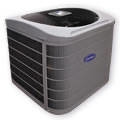
WHEN MANAGEMENT IS NOT HEARING YOU
In the State of New York, the “implied warranty of habitability” mandates that every unit that is leased out for residential purposes be free of conditions that could be detrimental the health, safety or well-being of its inhabitants. A violation of that law could not only result in the landlord or lessor being hit with violations and civil penalties, but the tenant could seek a rent reduction or “abatement” depending on the severity of the condition(s) in question. (Interestingly, this law also applies to tenant-shareholders of a cooperative.)
Tenants may also file claims predicated on common law “nuisance” and “constructive eviction” theories, based on the wrongful interference with their use and enjoyment of their homes.
But the ugly reality is that litigation can often be extremely expensive and time-consuming – and not necessarily swift, particularly given how backed up our courts are, post-pandemic. That’s why, in a recent column that was featured in the June 2021 issue of Cooperator News, senior partner, Lucas A. Ferrara, tried to dissuade a cooperative shareholder from immediately resorting to a lawsuit.
In that particular piece, a shareholder shared the following facts:
Q. Five years ago, my husband and I bought an apartment with a small deck, which is located on top of my building’s parking garage. The prospect of a little outdoor space is what sold us on this place. For about eight months a year, it’s a second living room, and I have worked really hard to make it a beautiful place, investing thousands of dollars in plants and furniture.
The garage recently installed a very loud fan right underneath our deck. It blows car exhaust up into not just our outdoor space, but into our apartment, and is so loud it’s impossible to sleep through. When we’ve made what we feel are reasonable complaints about the situation to our managing agent, rather than addressing the issue, the manager angrily wondered how I got his phone number (which I called during business hours). The board president also castigated me for phoning him. What recourse do we have here?
In response, Ferrara advised the reader, in part, as follows:
“Before pulling the trigger on litigation … shareholders should always use their best efforts to resolve any dispute amicably, outside of court, to avoid spending significant sums on legal fees and related costs. Thousands of dollars would be expended on expert fees alone, as that independent analysis would be needed to determine whether or not the noise levels exceed legally permissible limits and/or whether the existing conditions pose a health or safety threat to the building’s occupants.
“Even after that substantial investment, there can be no guarantee the shareholders will prevail in court. A judge would need to find that the board violated the law, acted unreasonably, or otherwise abrogated its fiduciary responsibilities."
Of course, if attempts to amicably resolve the matter proved futile, Ferrara suggested that the reader consider selling the unit and finding another (quieter and safer) place to call home. And if that were not a viable option, he advised the reader to contact an attorney to discuss the most cost-effective manner in which to proceed.
Should you face an issue with your landlord or cooperative, please do not hesitate to reach out to an attorney from our office (212.619.5400) to arrange for a consultation.
SOURCE: https://cooperatornews.com/article/qa-loud-fan-is-driving-me-crazy/full
